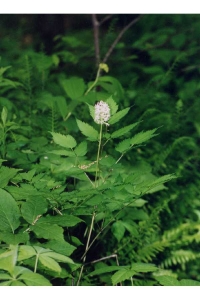
Welcome! Click on a tab below to find books, articles, and websites for use in this course.
You'll need a College of DuPage Library card in order to use most of the resources below from off campus. If your card is not working, it may need to be reactivated.
Questions? Feel free to use my contact info to the right, stop by the Reference Desk, or contact us by email or chat.
Getting Started: Finding (and Narrowing) a Topic
Have a glimmer of a topic that you'd like to work on? Great! You'll want to work to narrow that topic a bit before you dive into the catalog and databases, or you will be swamped with results. You can try the following strategies to narrow a topic:
- Visit CQ Researcher, a library database that summarizes current events into massive PDFs.
- Gale Virtual Reference Library has wonderful in-depth articles about medicine and the environment
- A Google News search can give you hints about what words to use when searching.
- Check out the New York Times Science section for breaking news.
Finding Articles in Databases
Scientific research can be best found in academic databases. Here are the top two databases to look for information.
Academic Search Complete has a mixture of popular and scholarly articles on a variety of subjects. You'll want to be sure that you're using a source appropriate for class when searching.
Academic OneFile is a great place to find a mixture of scientific and popular articles as well. Just like in Academic Search premier, make sure that you're using a good source for this project while searching.
See the full list of biology databases.
Evaluating Websites
While you're doing Google searches to either narrow your topic or in order to dig up more information on certain subject, you want to be careful to decide if the information you find is trustworthy.
When it comes to science, nearly everyone has opinions: are we getting enough Vitamin D? What will fracking do for our economy or our groundwater supply? Your job is to evaluate the information you can find through Google and Bing to find the good websites--those written by authors you can trust, with good and up-to-date information.
Authorship: Who created this website? What is their background on the topic? Are they trustworthy?
Bias: Why was the website created? What point of view does the author have? Does that limit the facts they present or how the facts are presented?
Date: How old is the information that is presented? Is it still accurate?
Questions? Check out your professor's guide to evaluating information or the COD Library's guide to evaluating information.
Class Exercise
Take a moment to look at your website. Is this information trustworthy? How do you know? Be prepared to tell your classmates your opinion.
The Crushing Cost of Climate Change
Cutting Short-Lived Climate Pollutants
US 'Climate Hubs' to Save Farms from Extreme Weather
Wildlife in a Warming World: Confronting the Climate Crisis
Hot Air on Climate Change
MLA Citation Style
Start by heading to the library citation guide.
You can also use NoodleBib to create your citations. Remember to create a personal username and password the first time you log in.
The Purdue OWL website has an excellent MLA guide that will give you common citation formats.